US Supreme Court rules in favor of FBI in Muslim surveillance case
The US Supreme Court just ruled in favor of the Federal Bureau of Investigation (FBI) in a case concerning discrimination claims by three Muslim men from California, essentially rubberstamping the agency’s surveillance of Muslim communities under the guise of “state secrets.”
The court on Friday unanimously overturned a lower court’s ruling that said a federal law regulating government surveillance called the Foreign Intelligence Surveillance Act (FISA) took precedence over the state secrets privilege – a legal defense based on national security interests – that the government asserted.
The lawsuit, originally launched in 2011, accused the FBI of infiltrating mosques in Southern California and secretly keeping Muslim Americans under surveillance because of their religion and in violation of the US Constitution's First Amendment.
The surveillance operation was carried out by FBI informant Craig Monteilh, but it failed to produce any public evidence of wrongdoing. The arrangement unraveled when Monteilh threatened to take violent action. Community members reported him to the local police and obtained a restraining order against him, according to court papers.
The plaintiffs are Eritrean-born US citizen Yassir Fazaga, an imam at the Orange County Islamic Foundation in Mission Viejo; native-born US citizen Ali Uddin Malik, who attended the Islamic Center of Irvine; and Yasser Abdel Rahim, a US permanent resident from Egypt who also attended the Islamic Center of Irvine. They are represented by the American Civil Liberties Union and others.
The Supreme Court just ruled in our case, FBI v. Fazaga, that the FBI can seek to hide its discriminatory and harmful surveillance of Muslim American communities under the guise of “state secrets.”
— ACLU (@ACLU) March 4, 2022
This is a dangerous sign for religious freedom and government accountability.
At the heart of the case was whether the FBI could invoke “state secrets” privilege to avoid lawsuits for monitoring Muslim communities. The plaintiffs had sued the FBI and its agents responsible for directing Monteilh, claiming that their right to practice their religion had been violated.
Invoking the state secrets privilege, the government dismissed those claims in 2012, arguing that disclosure of the information it needed to challenge the lawsuit would threaten US national security.
That privilege, the plaintiffs argued, deprived them of a chance to present evidence in court that would show the FBI mounted a “dragnet” surveillance campaign against Muslim Americans in Southern California.
The San Francisco-based 9th US Circuit Court of Appeals had ruled in favor of the plaintiffs in 2019, saying a provision of FISA established procedures for considering national security information and that the trial judge should have used them instead of dismissing the case.
The Supreme Court on Friday faulted the appeals court’s decision, with Justice Samuel Alito writing that the FISA provision in question "does not displace the state secrets privilege."
The ruling means the case returns to lower courts for further litigation, but the claims made by the plaintiffs have not been yet dismissed.
The decision came a day after the Supreme Court heard arguments in another case involving the state secrets privilege.
In a fractured decision on Thursday, the justices ruled that the doctrine shielded from investigation two CIA contractors who were instrumental in the brutal interrogation of Abu Zubaydah, an al-Qaeda suspect who was waterboarded more than 60 times and is being held without charge at Guantánamo Bay.
VIDEO | Rafah in the crosshairs
Israel orders evacuation of central Rafah as it prepares to expand invasion
Another Palestinian journalist killed in Gaza, tally rises to 143
Gaza mass graves: Victims 'executed' at point blank range
VIDEO | Colonialism and hijab
VIDEO | Pro-Palestinian protesters take to the streets in Chile
Explainer: What is significance of UNGA vote on Palestine’s full membership?
Hundreds flee as Russian troops close in on Ukraine’s Kharkiv


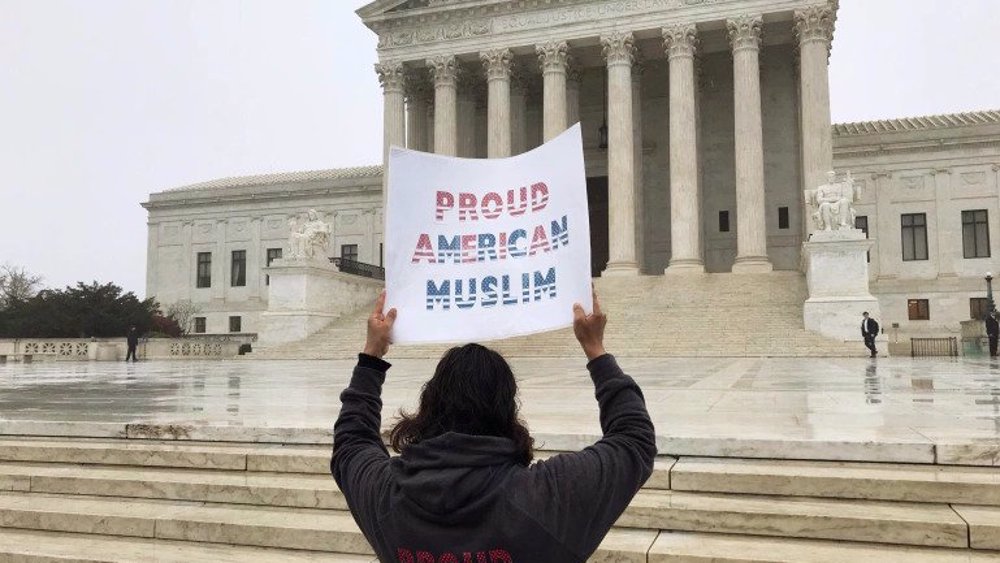
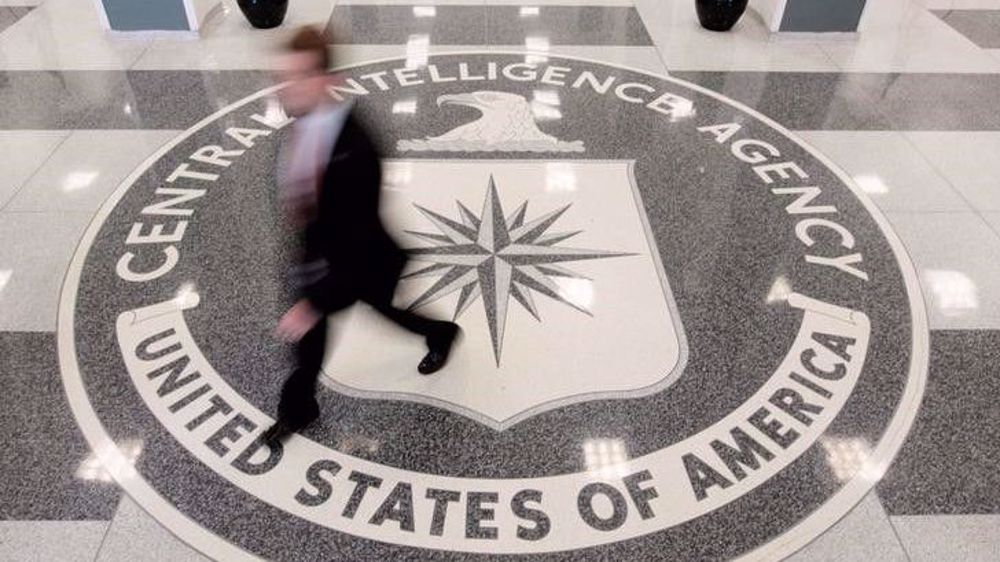
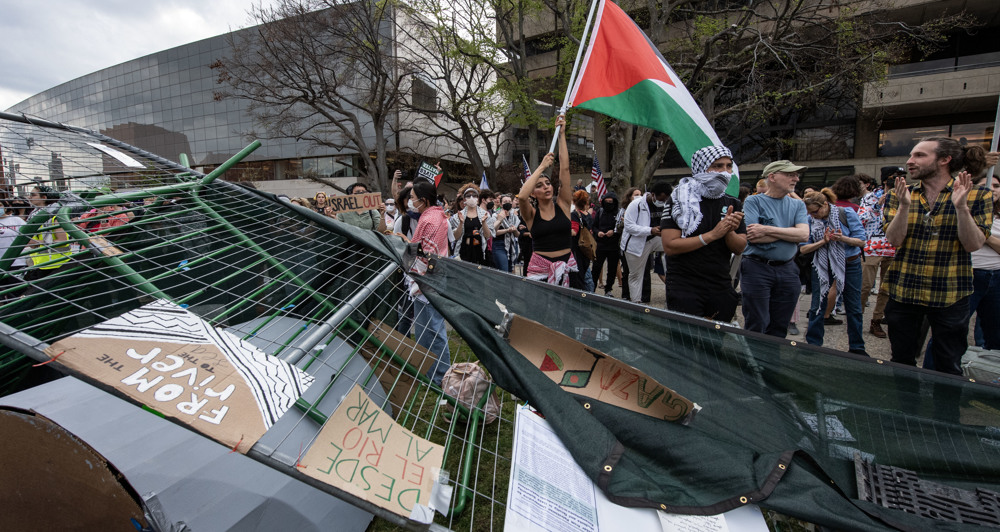
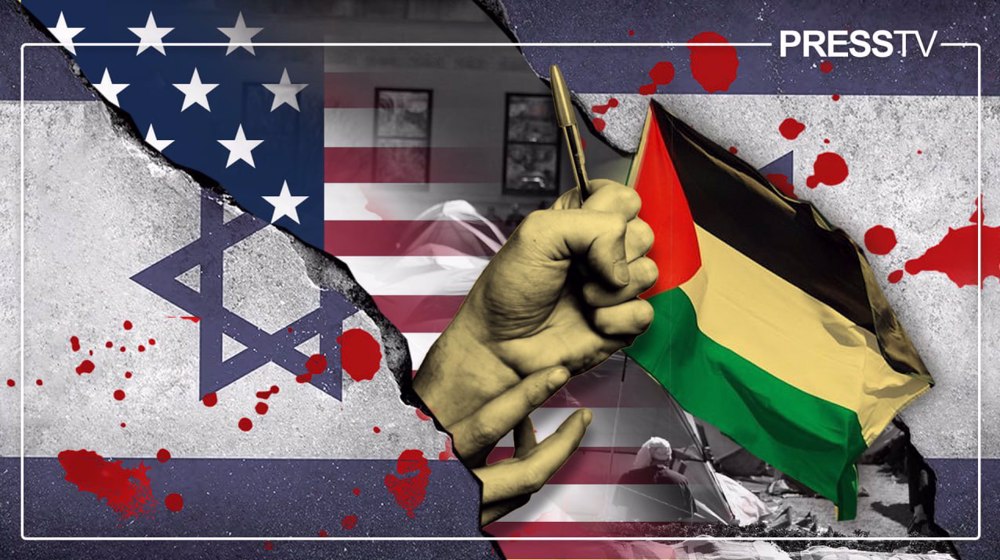
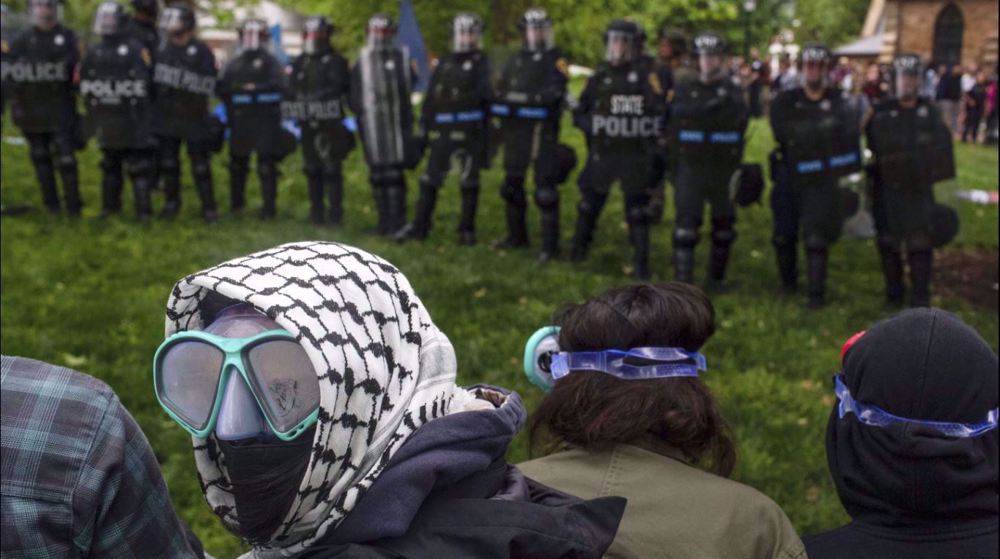




 This makes it easy to access the Press TV website
This makes it easy to access the Press TV website